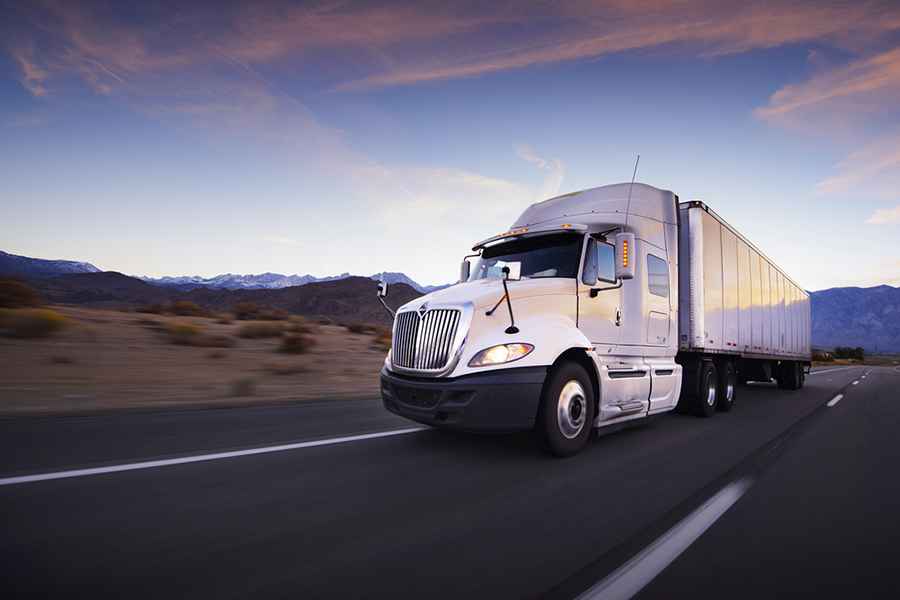How To Safely Tow a Trailer on Long Distance Trips
Towing a trailer on long-distance trips can be a convenient and practical way to transport goods or enjoy outdoor adventures. However, it also comes with added responsibilities and potential risks. To ensure a safe journey and minimize the chances of accidents, it's crucial to follow specific guidelines and best practices. In this article, we will explore essential tips for safely towing a trailer on long-distance trips.

1. Know Your Vehicle's Towing Capacity
Before embarking on a long-distance trip with a trailer, it's vital to understand your vehicle's towing capacity. Exceeding the recommended limit can strain the engine, brakes, and transmission, compromising the vehicle's overall performance and safety. Refer to your vehicle's owner's manual or consult with a trusted mechanic to determine the maximum towing capacity. You should also research the best trailer options for your needs and budget. For instance, ACE Trailers offers a variety of roll-off trailers and other specialized trailers that are designed to withstand long-distance trips.
2. Invest in the Right Equipment
To tow a trailer rental safely, you need the appropriate equipment. Ensure your vehicle is equipped with a proper hitch that matches the trailer's size and weight. A weight distribution hitch can help distribute the load more evenly between the front and rear axles of your vehicle, improving stability during the journey. Additionally, make sure all electrical connections and safety chains are secure and in good condition.
3. Perform a Pre-Trip Inspection
Conduct a thorough inspection of both your towing vehicle and the trailer before hitting the road. Check the tire pressure, including the spare tire, and examine the trailer's wheels, axles, and suspension system. Verify that all lights and signals are working correctly. Inspect the trailer's cargo to ensure it is adequately secured and evenly distributed.
4. Distribute Weight Properly
Proper weight distribution is critical for safe towing. Load the trailer with heavier items positioned low and towards the front. This helps maintain stability and prevents swaying or fishtailing during the journey. Avoid overloading the trailer and stick to the manufacturer's recommended weight limits.
5. Drive Defensively
Driving defensively becomes even more important when towing a trailer on long-distance trips. Allow for a longer stopping distance, especially when going downhill or in adverse weather conditions. Avoid sudden braking or acceleration, and maintain a safe following distance to give yourself ample time to react to changes in traffic.
6. Practice Turning and Backing Up
Towing a trailer alters the turning radius of your vehicle. Practice turning in an open, empty area to get a feel for the increased width of your setup. Additionally, practice backing up, which can be challenging with a trailer. Use your mirrors effectively, and consider having a spotter guide you if necessary.
7. Monitor Tire Pressure and Temperature
Regularly check the tire pressure of both your towing vehicle and the trailer during the trip. Underinflated or overinflated tires can lead to reduced stability and increase the risk of blowouts. Additionally, monitor the tire temperature, especially during long drives. Overheated tires can be a sign of potential issues and may lead to tire failure.
8. Take Breaks and Stay Hydrated
Long-distance trips can be tiring, both physically and mentally. Plan frequent breaks to rest and stretch your legs. Staying hydrated and well-rested will help you remain alert and focused while driving. Avoid pushing yourself too hard, and consider staying overnight at designated rest areas or campgrounds to get adequate rest.
9. Plan Your Route in Advance
Before starting your journey, plan your route thoroughly. Choose roads and highways that are suitable for towing, avoiding steep inclines or narrow roads whenever possible. Check for potential construction zones or traffic jams that could delay your trip. Planning ahead will help you avoid unnecessary stress and keep the journey smooth.
10. Be Prepared for Emergencies
Despite all precautions, emergencies can happen. Be prepared with a well-stocked emergency kit that includes basic tools, first aid supplies, a flashlight, and extra fluids for your vehicle. Carry a fully charged mobile phone and have emergency contact numbers on hand. Familiarize yourself with your insurance coverage and know the procedures in case of an accident or breakdown.
Towing a trailer on long-distance trips can be a rewarding experience if done safely and responsibly. Understanding your vehicle's towing capacity, investing in the right equipment, and conducting pre-trip inspections are essential steps to ensure a smooth journey. Proper weight distribution, defensive driving, and regular monitoring of tire pressure and temperature contribute to the safety of the trip. Additionally, planning your route, taking breaks, and being prepared for emergencies will help you handle unexpected situations with confidence. By following these tips, you can enjoy your long-distance trailer trips with peace of mind and create lasting memories along the way.
Image credit: Depositphotos